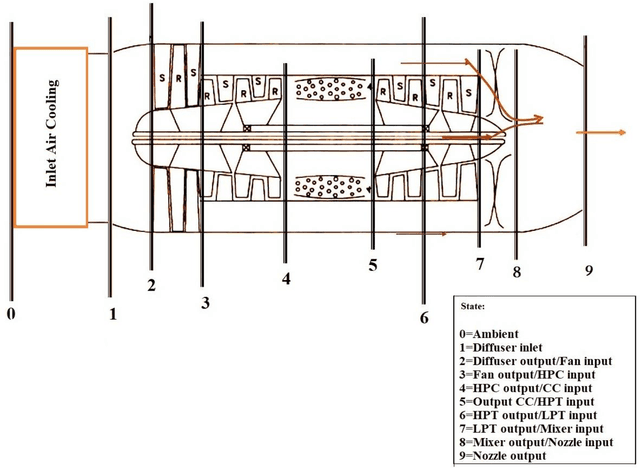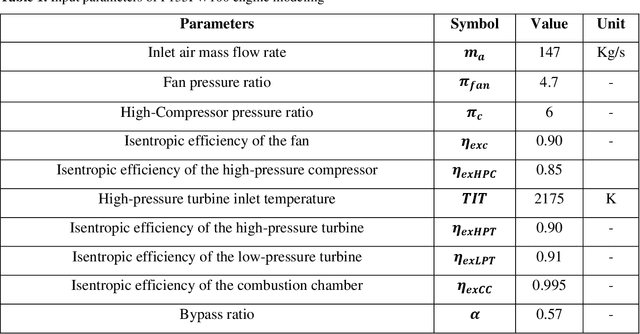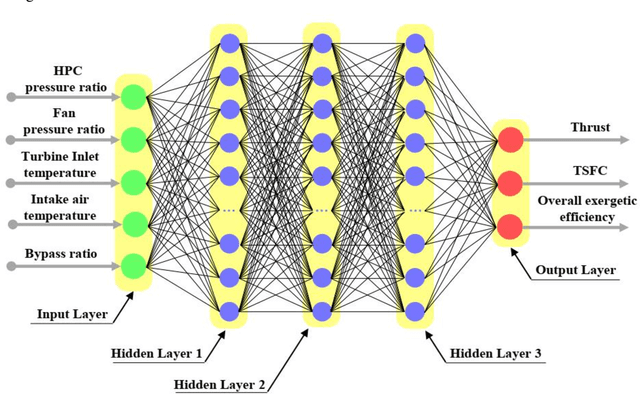Mahdi Alibeigia
Prediction of the energy and exergy performance of F135 PW100 turbofan engine via deep learning
Aug 24, 2022



Abstract:In the present study, the effects of flight-Mach number, flight altitude, fuel types, and intake air temperature on thrust specific fuel consumption, thrust, intake air mass flow rate, thermal and propulsive efficiecies, as well as the exergetic efficiency and the exergy destruction rate in F135 PW100 engine are investigated. Based on the results obtained in the first phase, to model the thermodynamic performance of the aforementioned engine cycle, Flight-Mach number and flight altitude are considered to be 2.5 and 30,000 m, respectively; due to the operational advantage of supersonic flying at high altitude flight conditions, and the higher thrust of hydrogen fuel. Accordingly, in the second phase, taking into account the mentioned flight conditions, an intelligent model has been obtained to predict output parameters (i.e., thrust, thrust specific fuel consumption, and overall exergetic efficiency) using the deep learning method. In the attained deep neural model, the pressure ratio of the high-pressure turbine, fan pressure ratio, turbine inlet temperature, intake air temperature, and bypass ratio are considered input parameters. The provided datasets are randomly divided into two sets: the first one contains 6079 samples for model training and the second set contains 1520 samples for testing. In particular, the Adam optimization algorithm, the cost function of the mean square error, and the active function of rectified linear unit are used to train the network. The results show that the error percentage of the deep neural model is equal to 5.02%, 1.43%, and 2.92% to predict thrust, thrust specific fuel consumption, and overall exergetic efficiency, respectively, which indicates the success of the attained model in estimating the output parameters of the present problem.
* 41 pages, 13 figures, 4 tables
 Add to Chrome
Add to Chrome Add to Firefox
Add to Firefox Add to Edge
Add to Edge